|
Getting your Trinity Audio player ready...
|
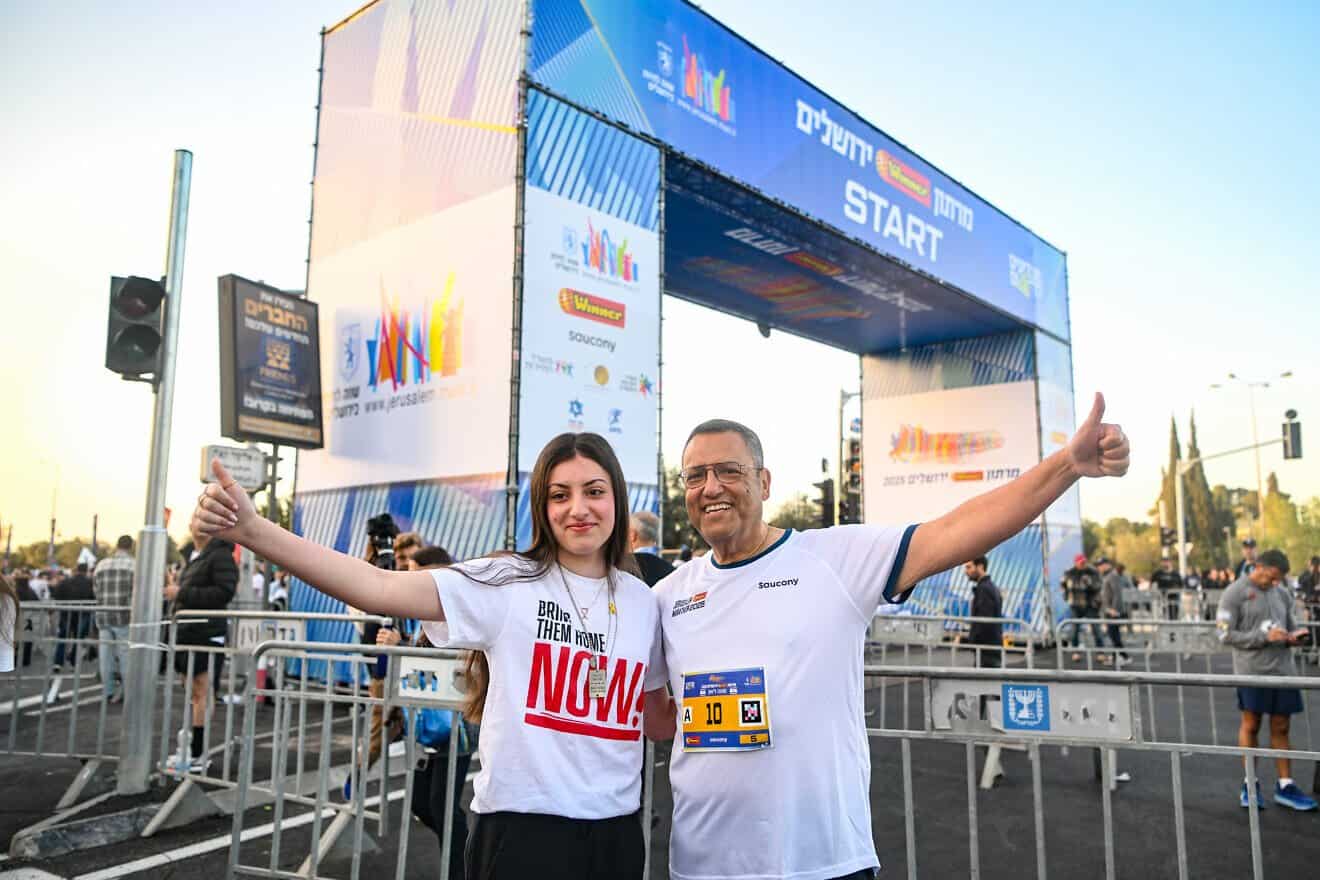
This year’s races were kicked off by Karina Ariev, freed on Jan. 25 after 477 days in Hamas captivity in Gaza. In emotional remarks to runners before the starting shot, she said: “As you run, feel the freedom, the comforting embrace of your surroundings. Dedicate this run to the memory of our heroes who sacrificed their lives so that we could stand here today, to the hostages—may they return safely and soon—to ourselves, and to the entire people of Israel.”
More than 40,000 runners registered across six race categories: the Full Marathon (42.2 km.), Half Marathon (21.1 km.), 10 km., 5 km., Family Race (1.7 km.) and 800-meter Community Race.
Jerusalem Mayor Moshe Lion, who joined the 5K race with Ariev, emphasized the deeper meaning of the day. “In these challenging times, we choose life. We choose to run,” he said. “Many runners participate to honor a cause, in solidarity with hostages and bereaved families.”
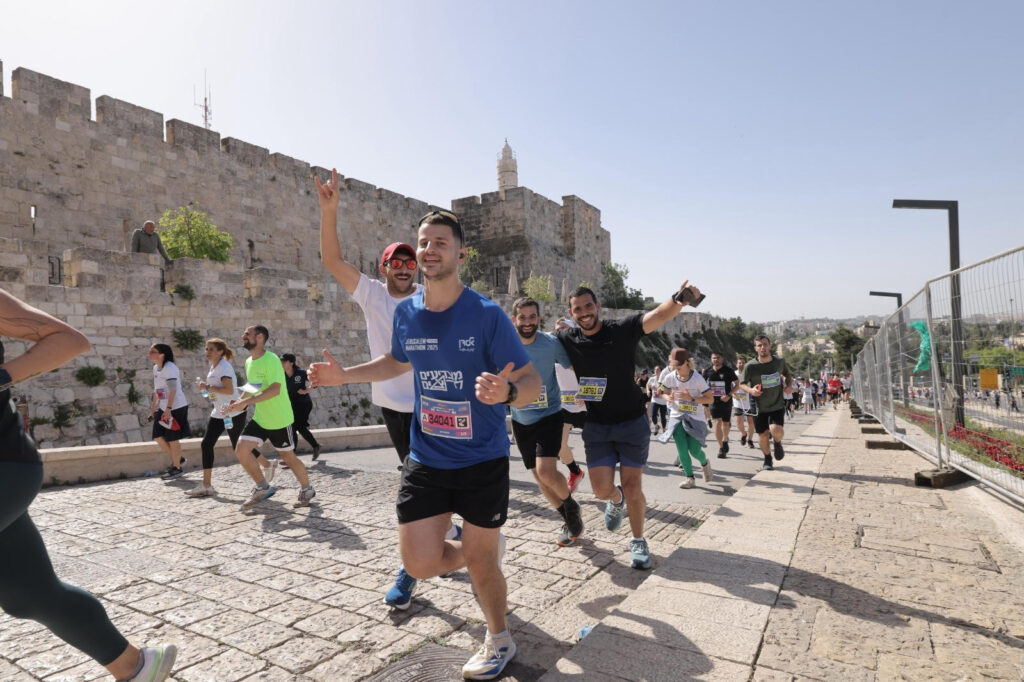
• In the men’s full marathon, Bogdan Semenovych, 39, from Ukraine, claimed first place with a time of 2:22:47, followed closely by Gabriyesos Tachlowini Melake, 27—an Eritrean-who lives and trains in Tel Aviv and is supported by an International Olympic Committee Refugee Athlete Scholarship—and Yonah Amitai, 31, from Israel.
• In the women’s race, Salgong Pauline Gepkirui, 37, from Kenya, won with a time of 2:51:58.
Winners received cash prizes: $3,750 for first place, $2,500 for second, and $1,250 for third.
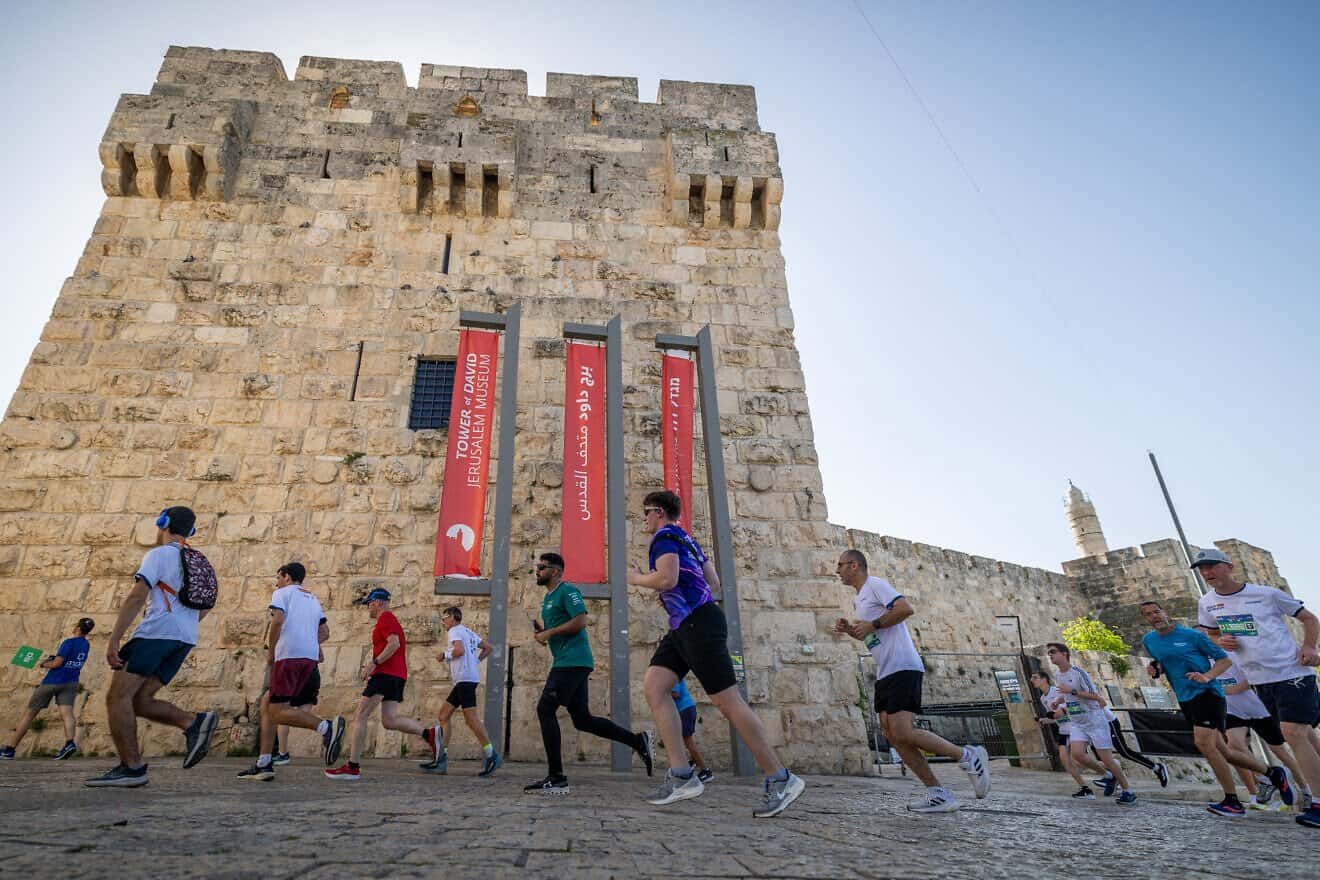
The Jerusalem Marathon is run through 4,000 years of history. Runners enter the Old City through Jaffa Gate and exit via Zion Gate, soaking in breathtaking views and spiritual significance with every stride.
Since its inception in 2011—the first race was held 48 hours after a deadly Jerusalem terrorist bombing—the marathon has grown in prestige and scope. That first year, torrential rain turned Sacher Park into a muddy swamp, prompting one participant to joke she hadn’t seen that much mud since Woodstock. The route and park have since undergone major upgrades.
This year, as in the past, major streets were closed from 5 a.m. to 1 p.m. to accommodate the runners. Three finish lines were set: one in Sacher Park for the full marathon, another just outside the part for the half marathon and 10K, and a dedicated area for the family and community races.
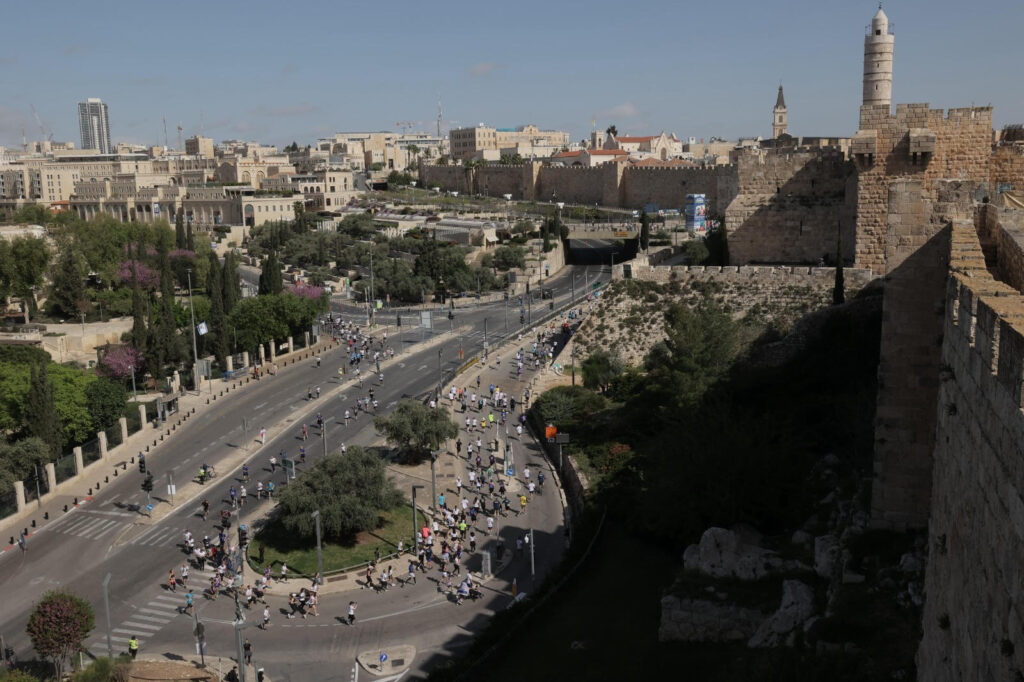
Running for a cause
Beyond the medals and milestones, the Jerusalem Marathon has evolved into a platform for remembrance, healing and giving. More than 27 organizations sponsored teams, set up tents in Sacher Park, and offered snacks and solidarity.
Chaim Waxman, 84, a retired professor of sociology and Jewish studies, ran his 12th 10K. “I run to stay fit, to feel good about myself, and to support Camp HASC, an institution that is run by amazingly dedicated people who do amazing work with Jewish adults and children with special needs.” He credits his wife, Chaya, for encouraging him to exercise after they made aliyah in 2006.
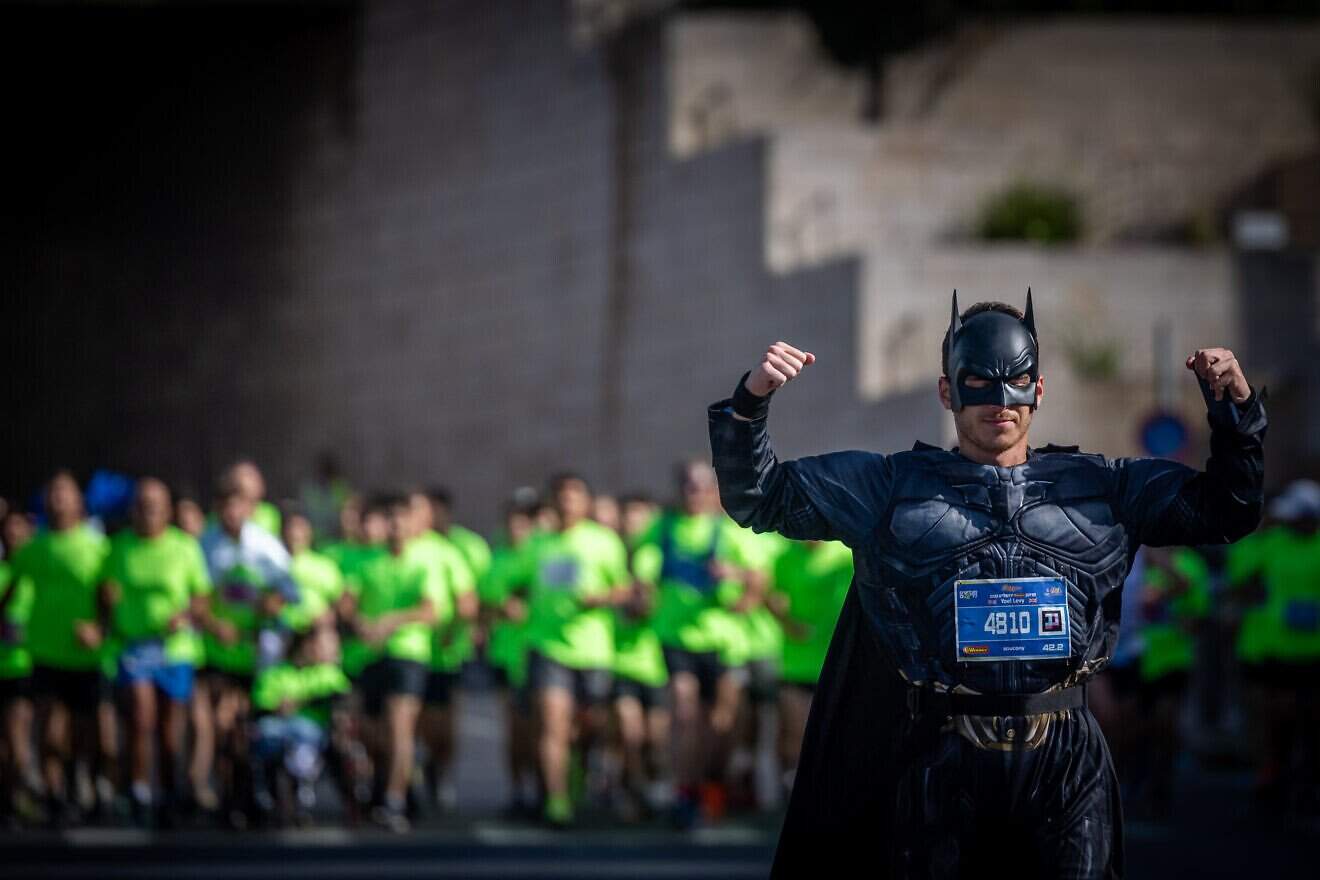
Yoel Levy, a Manchester-based online fitness coach and content creator, ran the full marathon in full Batman costume. “Their story hit me hard,” he said, referring to the kidnapped Bibas boys, Ariel and Kfir. “I want to run as Batman for them—because every kid deserves to believe in heroes.”
Levy ran for Shalva, an organization supporting children with disabilities, a cause close to his heart: His sister and cousin both have Down syndrome. Shalva brought nearly 250 international runners to Jerusalem this year to join the Israeli runners in all distances.
Eitan Ashman, a father of four who developed aphasia after a 2017 stroke, inspired Team Eitan. His wife, Leora, spoke about the power of the marathon: “There is nothing like running in Jerusalem.” Their team also raises awareness for soldiers with brain injuries and aphasia, advocating through the Koach Eitan organization. It’s a challenge for those with disabilities and their families when intelligent people cannot speak to express themselves.
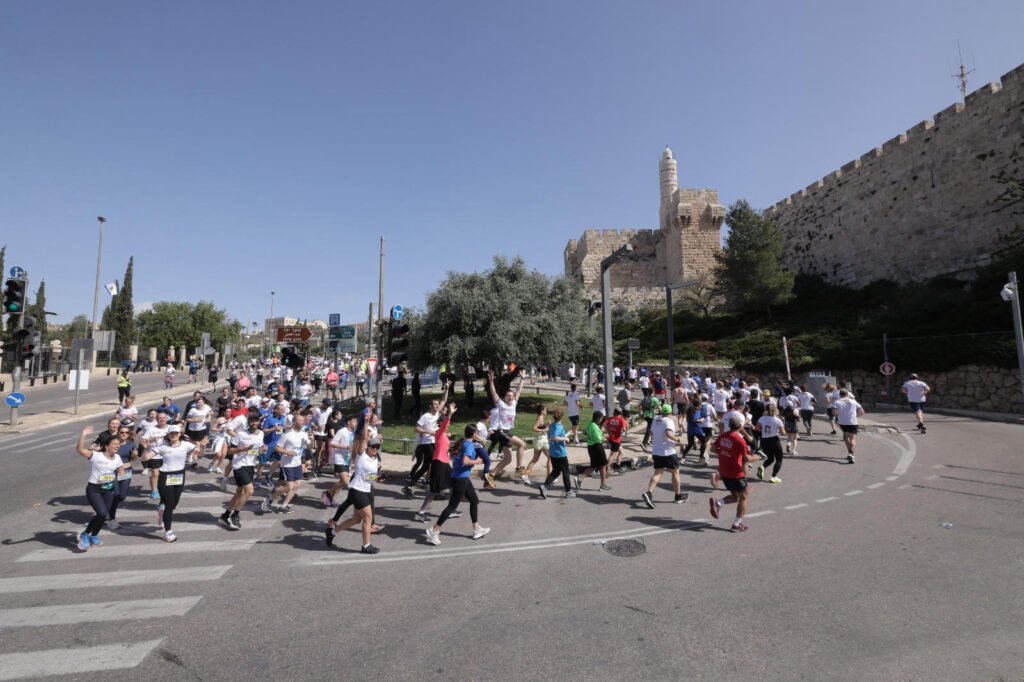
The Koby Mandell Foundation, honoring the memory of 13-year-old Koby Mandell and his friend Yosef Ishran, killed in a 2001 terrorist attack, returned with their largest team yet: more than 200 runners. Anna Harari, whose husband, Shmuel, was killed in action in Gaza in October 2024, ran this year for strength and healing. With three young children, she shared, “Running gives me emotional and physical strength.”
Team OneFamily, which supports victims of terrorism, was pared down this year because its teen runners and staff are gearing up and leaving for their annual three-day pre-Passover camp. However, they brought 77 runners this year, including bereaved families and trauma counselors. Elroi Kapach, injured in a July 2023 attack near Tekoa, ran the 5K with his two daughters; his son ran the 10K. His wife, Tamar Kol-Kapach, lost both parents in a 2005 shooting and has long been involved with the organization. “Marathons symbolize resilience,” she said. “They remind us to keep moving forward, no matter what.”

While the identities of many participating soldiers remained anonymous, one “lone soldier,” in Israel without close family who can help her, proudly shared her journey. Shoshie, from Russia, ran the 10K for the Michael Levin Base that supports lone soldiers and National Service volunteers. “I never considered myself a runner, but training for this marathon changed that. Now, I love it,” she said.
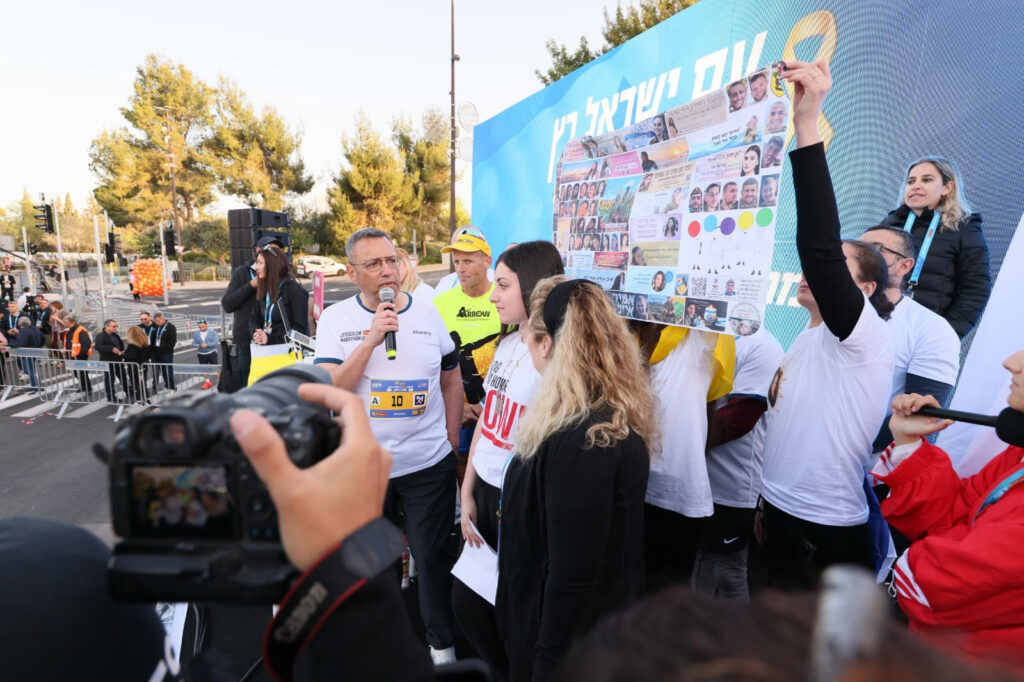
Team Roey, honoring slain IDF soldier Roey Weiser, had 130 runners this year, running under the banner: “You can go the distance. You can run the mile.”
Numerous new running groups have been formed in honor of slain and wounded soldiers, as well as the hostages held in Gaza.
By midday, the sun warmed the city with an occasional cool breeze. At Sacher Park, tired runners and smiling supporters gathered as the final full marathoners crossed the finish line.
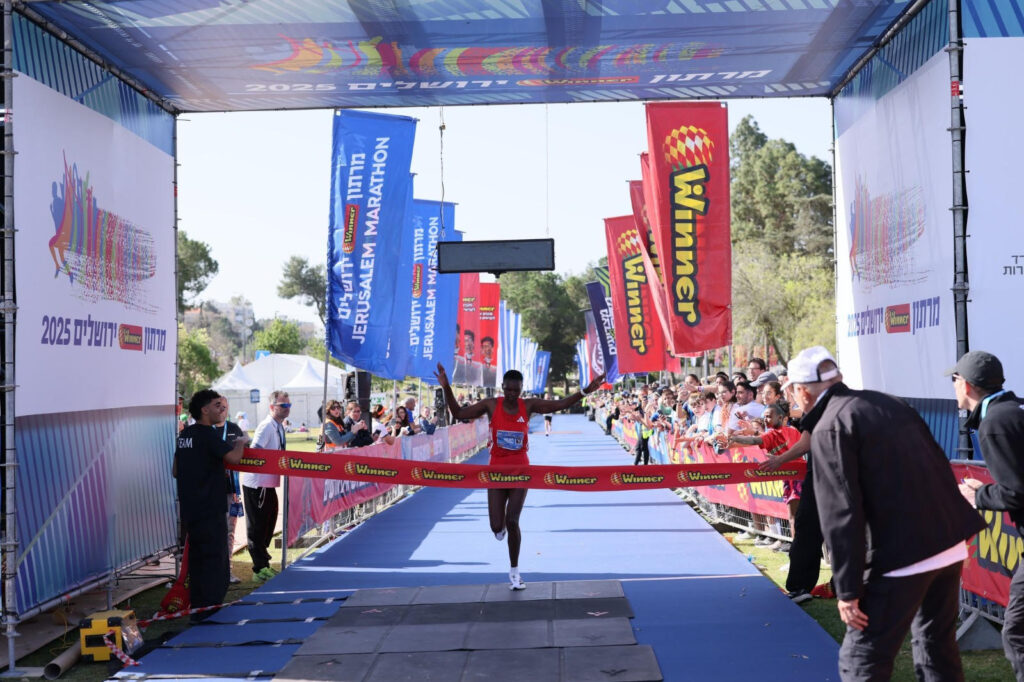
As Ateret, a young woman pushing two children home, told JNS: “It was wonderful to watch the runners.”
Naomi, another onlooker, added: “I spoke with runners as they passed by. They loved the music, the cheering, the atmosphere.”
The 2025 Jerusalem Winner Marathon proved again the power of faith and resilience, and that the sport of running can unite thousands. Whether sprinting for a medal or walking for a cause, each participant shared one clear message: We keep going. Together. Am Israel Runs.




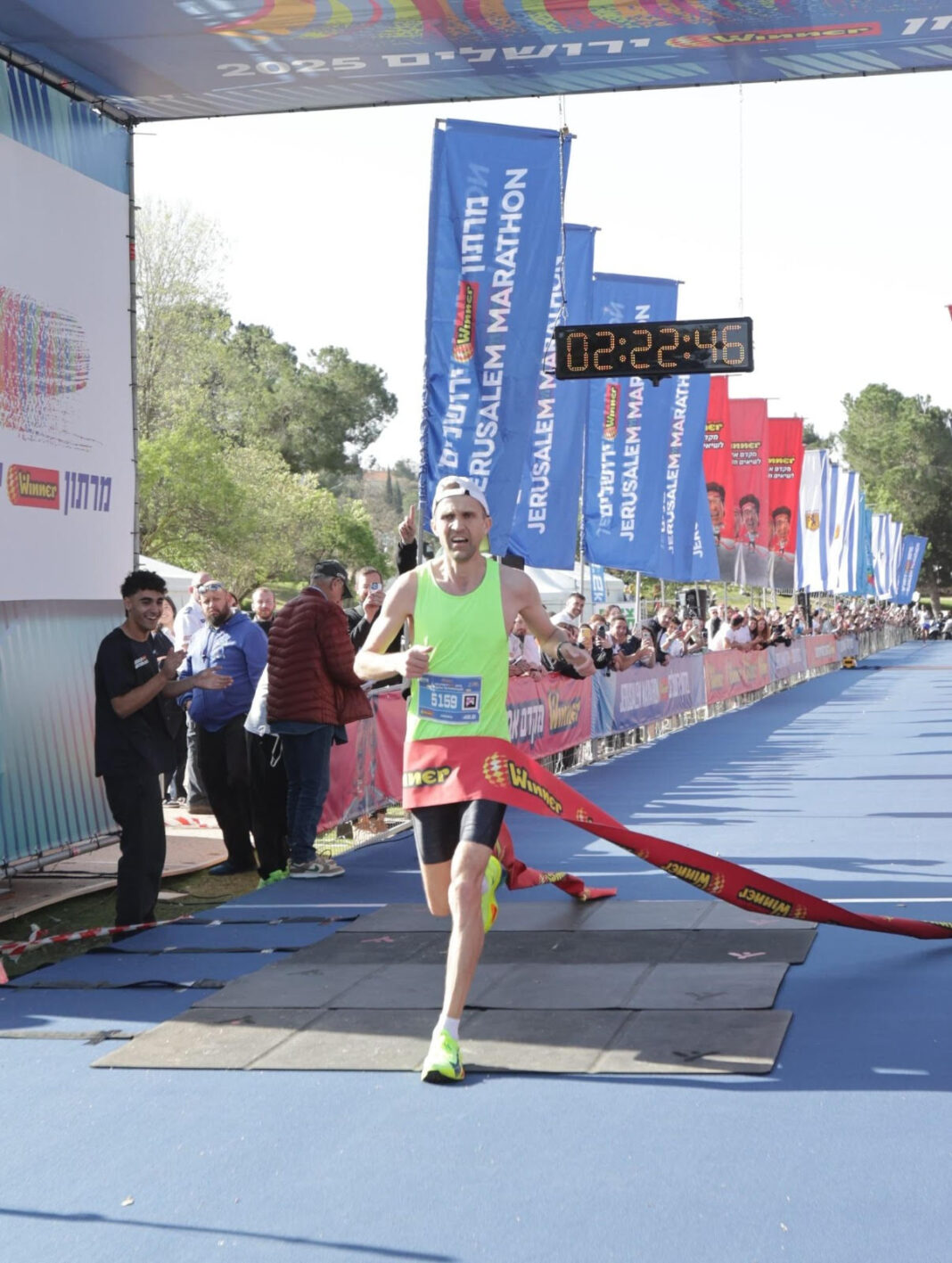
The Most Important Video about the G
https://pulseofisrael.com/2024/01/31/gaza-war-video/